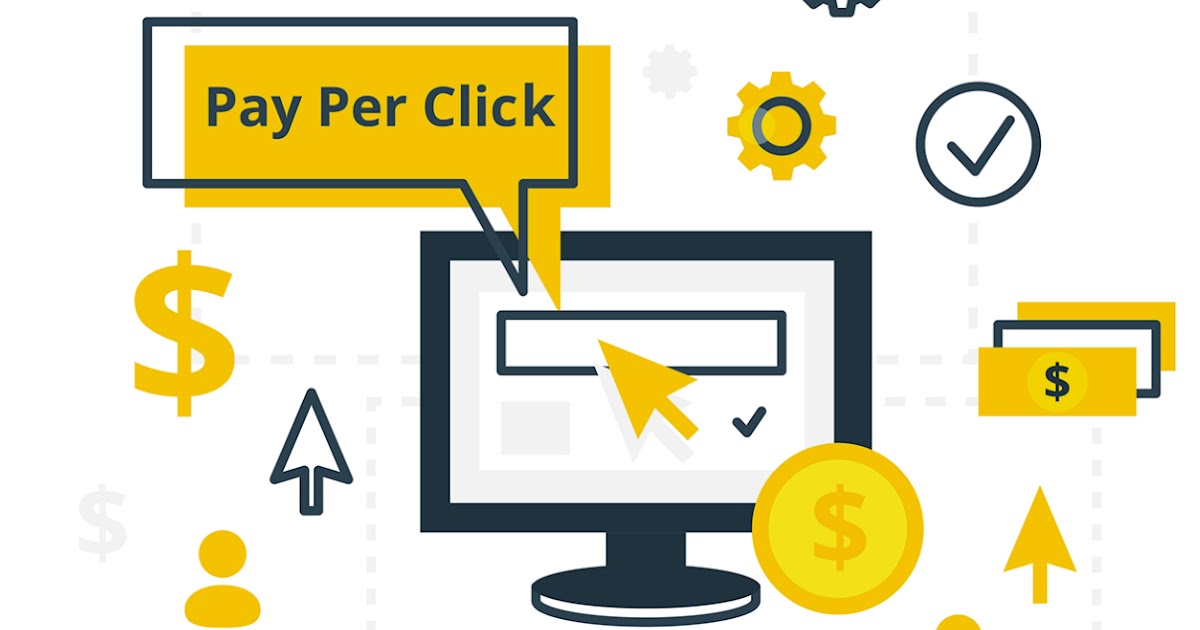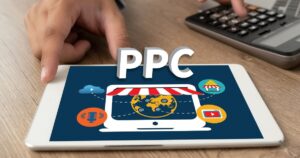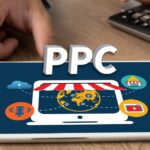Imagine having a crystal ball that not only predicts the future of your pay-per-click (PPC) campaigns but also gives you insights and strategies to improve them. That’s the purpose of this post: to break down PPC for you.
Whether you’re a business owner aiming to elevate your online presence or a marketer focused on maximizing ad spend efficiency, you’re in the right place. We’ll uncover the secrets behind successful PPC campaigns that drive real results.
From targeting the right audience to optimizing ad placements, we’re here to simplify the essentials of PPC. The goal? To help you make every click count and achieve tangible outcomes.
So, get ready to boost your PPC skills and take your campaigns to the next level. With the right strategies in place, you can enhance your reach, increase conversions, and see a noticeable return on investment in no time.
you can also read about Everything You Need to Know About the Sturnballs Trend
Definition of PPC Intelligence
PPC Intelligence uses advanced analytics, machine learning, and data collection to enhance pay-per-click campaigns. By leveraging these tools, it provides advertisers with valuable insights into ad performance, keyword effectiveness, competitor analysis, and user behavior.
With this in-depth knowledge, marketers can create highly targeted ads that better resonate with their audience. PPC Intelligence helps optimize ad spend, boosting return on investment (ROI) while reducing wasted budget on underperforming keywords or placements.
Ultimately, PPC Intelligence allows businesses to maximize their ad efficiency, refine their strategies, and make data-driven decisions that lead to more effective campaigns and better results.
Importance of PPC Intelligence in Digital Marketing Strategies
The importance of PPC Knowledge in digital advertising strategies cannot be overstated. In today’s fast-paced advertising world, where consumer interests shift quickly and competition is intense, having precise, data-driven insights provides businesses with a crucial edge.
PPC Knowledge enables continuous optimization of campaigns, ensuring that each ad reaches its target audience with a compelling, impactful message. This real-time adjustment helps marketers connect with the right people at the right time, boosting engagement and response rates.
By increasing the effectiveness of digital marketing efforts, PPC Knowledge enhances the overall efficiency of advertising budgets. It’s an essential tool for modern marketers, empowering them to make informed decisions that maximize results and make the most of their promotional spend.
Understanding the Fundamentals of PPC Intelligence

Pay-per-click (PPC) is a digital marketing model where advertisers pay a fee each time someone clicks on their ad. It allows businesses to buy site visits rather than relying solely on organic traffic. For anyone interested in digital marketing, understanding PPC fundamentals is essential.
At its heart, PPC is all about relevance. Advertisers bid on keywords they believe their audience will use to search for their products or services. Search engines then use complex algorithms to decide which ads to display, based on factors like keyword relevance, landing page quality, and bid amount.
This means that ads need to be as relevant and useful to the user as possible to succeed. Another key aspect of PPC is budget control. With PPC, you can set daily and monthly spending limits, ensuring that you stay within your planned budget.
Additionally, PPC offers measurable ROI, allowing you to track exactly how much you spend versus the revenue your ads generate. Effective campaign management, including ongoing optimization, keyword refinement, and ad copy testing, is crucial for driving targeted traffic and boosting online visibility and sales.
Core Components of PPC Intelligence
Keyword Research and Analysis
Tools like Google Keyword Planner and SEMrush are essential for discovering profitable keywords. These platforms help you identify keywords that are both relevant and valuable by analyzing search volume, cost-per-click (CPC), and user intent. With these insights, you can organize keywords that align with your marketing goals and target the right audience effectively.
Understanding keyword trends and forecasting future performance is equally important. By staying aware of market shifts and predicting keyword trends, advertisers can refine their strategies to better reach their audience and optimize their ad spend. This proactive approach ensures that campaigns are always aligned with current and future market demands.
Competitive Analysis
Tools like SpyFu and Ahrefs offer valuable insights into competitors’ PPC tactics, including their keyword choices, ad spending, and ad copy. Accessing this information helps marketers develop a more competitive PPC strategy by understanding what’s working for others in their industry.
Analyzing competitors’ positioning and ad spending provides a clearer view of the market landscape. By studying how competitors allocate their budget and approach their ads, businesses can identify market gaps and uncover opportunities to differentiate their own campaigns.
Ad Copy Optimization
A/B testing, or split testing, is essential for optimizing ad copy by identifying which variations yield the highest click-through rates (CTR) and conversions. This process involves experimenting with different headlines, descriptions, and calls to action (CTAs) to determine what resonates best with your audience.
Incorporating AI for dynamic ad creation and personalization can greatly enhance ad relevance and engagement. AI tools enable the creation of tailored ad copy for specific audience segments, improving the overall performance of your campaigns by delivering more targeted and compelling messages.
Bid Management and Optimization
Automated bid management tools, such as those offered by Google Ads or third-party platforms, allow you to adjust bids in real time based on performance metrics. These tools help ensure that you’re not overspending on keywords that aren’t delivering results, keeping your budget focused on high-performing areas.
To optimize bids for maximum ROI, it’s essential to adjust bids based on devices, locations, and times of day that yield the best results. Effective bid optimization involves a strategic balance, aiming to enhance visibility while maximizing return on investment by focusing on the most profitable opportunities.
Why Competitive PPC Intelligence Is Crucial

In today’s digital marketplace, leveraging competitive PPC intelligence is crucial for success. This intelligence provides valuable insights into your competitors’ strategies, including the keywords they target, the ads they use, and their bidding amounts.
Understanding these elements can give you a significant edge in your advertising efforts. By learning from the successes and mistakes of others, you can save both time and money, avoiding costly trial-and-error processes.
Additionally, this knowledge allows you to identify and seize opportunities that your competitors might overlook. Ultimately, competitive intelligence enables you to create more effective campaigns that resonate with your audience, leading to increased clicks and conversions.
Best Practices for Maximizing PPC Intelligence
Continual Learning and Adaptation
Staying updated is essential in the rapidly evolving landscape of PPC. This means continuously enhancing your knowledge through online courses, webinars, and industry blogs. The world of digital advertising is constantly changing, with new algorithms, tools, and best practices emerging regularly.
Advertisers who invest time in learning and adapting to these developments can significantly improve their campaign performance and maintain a competitive edge. By keeping pace with industry changes, you can ensure that your strategies remain effective and relevant, ultimately driving better results for your advertising efforts.
Integration of PPC Intelligence across Marketing Strategies
Ensuring alignment between PPC campaigns and overall marketing goals is essential. Each PPC initiative should support the broader objectives of your marketing strategy, whether those goals are brand awareness, lead generation, or sales.
Integration involves leveraging insights from PPC data—such as keyword performance and customer behavior—to inform content marketing, SEO, and social media strategies. This holistic approach ensures that all marketing efforts are connected and working toward common goals, maximizing the effectiveness of your advertising budget.
By prioritizing continuous learning and integrating PPC intelligence across marketing channels, advertisers can create more authentic and cohesive campaigns. Adapting to new trends and technologies while strategically aligning PPC efforts with overarching marketing objectives is crucial for achieving optimal results.
Exploring Pay-Per-Click Tools For Effective PPC Campaigns

When managing PPC campaigns, using the right tools can make a significant difference in achieving success and maximizing return on investment (ROI). Pay-per-click tools assist in various aspects of campaign management, including keyword research, ad creation, optimization, and analysis.
The key is to leverage these tools to gather valuable insights that can guide your strategy. By extracting actionable data from these tools, you can make informed decisions that enhance your campaigns.
Whether it’s identifying high-performing keywords or optimizing ad copy, effective use of PPC tools can lead to better results and improved efficiency in your advertising efforts.
Keyword research tools
Keyword research tools are crucial for identifying the right keywords your target audience uses to search for your products or services. Platforms like Google Keyword Planner and SEMrush help you pinpoint high-volume keywords while also offering insights into competition levels and cost-per-click estimates.
With this information, you can select keywords that align with both your budget and campaign objectives. By choosing the right keywords, you increase your chances of reaching your audience effectively and driving relevant traffic to your site.
Ad creation and optimization tools
Ad creation and optimization tools play a vital role in developing engaging ad copy and enhancing performance. AI-driven solutions provide dynamic ad creation capabilities, allowing for personalized advertisements that connect with various audience segments effectively.
Additionally, A/B testing tools enable you to experiment with different ad elements, helping you determine which variations drive the most clicks and conversions. By continuously refining your ads based on this data, you can significantly improve their effectiveness and achieve better campaign results.
Bid management tools
Bid management tools automate the repetitive process of managing bids, ensuring you maximize your advertising spend. These tools continuously analyze campaign performance and adjust bids in real-time to optimize results, whether the goal is to increase clicks, conversions, or stay within a specific budget.
By leveraging these tools, you can focus on strategy rather than the minutiae of bid adjustments. This automation allows for more efficient budget allocation and helps you achieve your advertising goals more effectively.
Analytics and reporting tools

Analytics and reporting tools provide a comprehensive view of your PPC campaign’s performance. They track key metrics such as click-through rates, conversion rates, and return on investment (ROI), giving you a clear understanding of what’s working effectively.
This data enables you to make informed, data-driven decisions and continuously refine your campaigns for better results.Successfully utilizing these pay-per-click tools involves an initial setup followed by ongoing maintenance and adjustments.
The most effective advertisers remain agile, consistently learning from their data and adapting their strategies to stay competitive in the dynamic landscape of digital advertising.
FAQs
What is PPC Intelligence?
PPC Intelligence refers to the use of advanced analytics and data insights to optimize pay-per-click advertising campaigns, helping marketers make informed decisions.
Why is keyword research important in PPC?
Keyword research identifies the terms your target audience uses, enabling you to select high-volume, relevant keywords that can improve your campaign’s performance.
How can I improve my PPC ad performance?
To improve PPC ad performance, focus on A/B testing ad elements, optimizing bids, and utilizing analytics to refine strategies based on performance data.
What tools are essential for PPC management?
Essential tools for PPC management include keyword research tools (like Google Keyword Planner), bid management software, A/B testing tools, and analytics platforms for tracking campaign performance.
How often should I analyze my PPC campaigns?
Regular analysis is crucial; it’s recommended to review PPC campaigns at least weekly to make timely adjustments and optimize performance based on the latest data.
CONCLUSION
PPC intelligence is vital for successful digital advertising. It helps marketers make data-driven decisions to optimize their campaigns. By understanding the strategies of competitors and analyzing keyword performance, businesses can improve their return on investment.
Utilizing the right tools is key. Keyword research, bid management, and analytics tools provide valuable insights. These tools enable advertisers to refine their strategies and create effective ads that resonate with their target audience.
Overall, staying informed and adaptable is crucial in the fast-paced world of PPC. Regularly analyzing campaign performance allows marketers to identify opportunities for improvement. With a solid PPC intelligence strategy, businesses can enhance their online visibility and drive better results.











